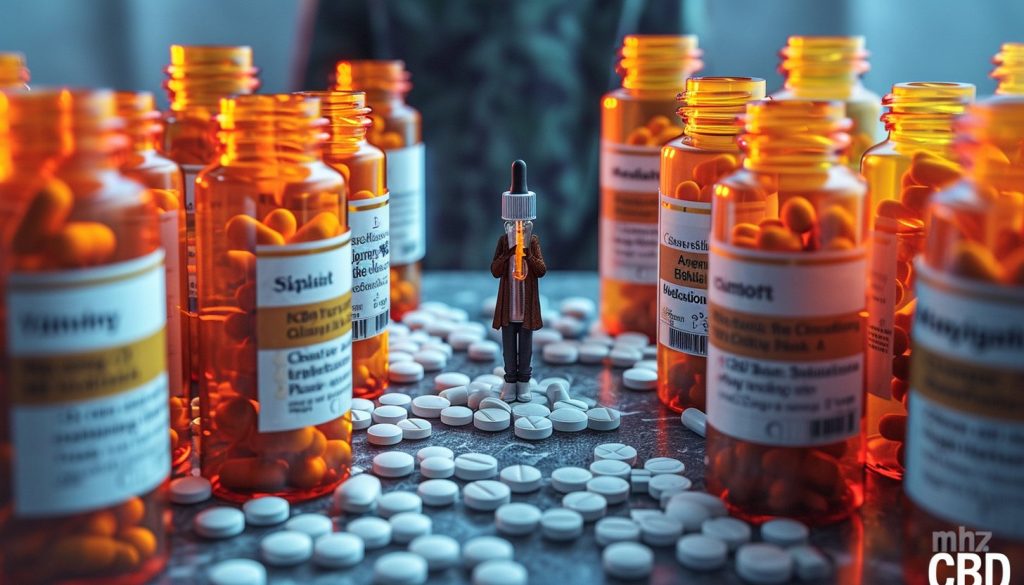Cannabidiol, or CBD, is increasingly used to relieve various ailments and disorders. Although considered safe and harmless for most people, caution should be exercised with certain medications to avoid harmful interactions and side effects. In this article, we will review medications that should not be taken with CBD.
Sommaire
ToggleDrugs that interact with the P450 system
The liver is an essential organ in the metabolism of drugs because it converts these substances into inactive compounds that can be excreted from the body. A specific enzyme, called cytochrome P450 (CYP), plays a crucial role in this process. Studies show that CBD can inhibit certain CYP enzymes, including CYP3A4 and 2C. Therefore, if you are taking medications that are also metabolized at this enzyme, there is a risk of drug interactions.
Antidepressants under CYP3A4 substrates
- Serotonin-norepinephrine:
- Duloxetine
- Venlafaxine
Lipid disorders: statins and fibrate under CYP3A4 substrates
- Statins:
- Lovastatin
- Cerivastatin (Withdrawn from the market)
- Simvastatin
- Fibrate:
- Fenofibrate
Note that this list is not exhaustive and that it is crucial to consult a healthcare professional before using CBD alongside any treatment.
Antidepressants and other medications for anxiety
The relaxing effects of CBD are often used to relieve symptoms of anxiety. However, concurrent use of certain antidepressants may result in an unwanted interaction. In particular, there are reports suggesting that CBD may interact with certain selective serotonin reuptake inhibitors (SSRIs), such as:
- Vortioxetine (Brintellix®)
- Fluvoxamine (Floxyfral®)
- Faboxetin (Fetzima®)
Selective norepinephrine-dopamine inhibitor
- Bupropion
- Atomoxetine
It is essential to discuss adding CBD to your routine if you are on this type of treatment to avoid side effects.
Anticoagulants and antiplatelet agents
The anti-inflammatory effects of CBD may benefit some people with blood clotting problems. However, it is possible that CBD interferes with certain anticoagulant and antiplatelet medications, such as:
- Warfarin (Coumadin®)
- Clopidogrel (Plavix®)
- Ticagrelor (Brilinta®)
Remember that it is important to talk to your doctor about taking CBD if you are following ongoing anticoagulant or antiplatelet treatment.
Antiepileptics
Although CBD has demonstrated effectiveness in treating some forms of epilepsy in children, it can cause interactions when taken with other anti-epileptic medications, such as:
- Carbamazepine (Tegretol®)
- Sodium valproate (Dépakine®).
- Phenobarbital (Gardénal®)
Using CBD with these medications could alter their effectiveness or cause side effects. It is therefore essential to consult a health professional before adding CBD to your epilepsy treatment.
Antihypertensives and beta blockers
CBD may potentially interact with certain medications used to treat high blood pressure, such as:
- Metoprolol (Lopressor®).
- Carvedilol (Coreg®).
- Bisoprolol (Zebeta®).
In summary, CBD is used safely by many people without problems. However, it is important to be aware of potential interactions between CBD and medications you are taking. Always consult a healthcare professional before adding CBD to your treatment regimen, especially if you are taking any of the medications mentioned above.



